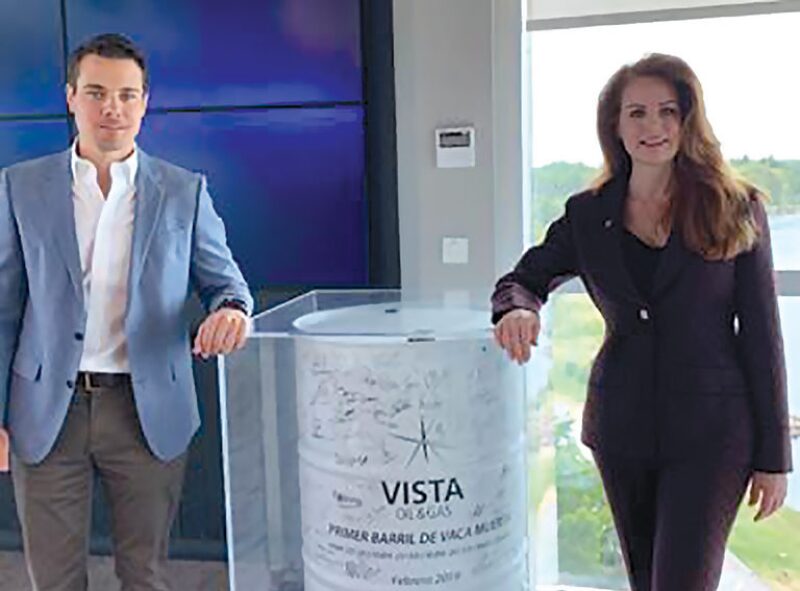
To collect, disseminate, and exchange technical knowledge—are the first seven words of SPE’s mission statement. These are the three fundamental objectives of our Society. We proactively seek out the technical knowledge that not only our members need, but that the industry requires to meet the world’s demand for oil and gas.
Collecting this information can be challenging, especially if those who have it are not willing or able to share it. This proved especially challenging in the area of unconventional shales when SPE began to hold conferences on the subject nearly a decade ago. At that time, papers authored by knowledgeable operators were few and far between. The rationale adopted by many operators was that any technical information about their company’s shale assets was confidential, and by withholding it, they could gain a small competitive advantage. This was also problematic for academia trying to solve the complex problems of unconventional reservoirs. Access to data was minimal unless university projects were directly funded by an operator to conduct research. Even if academics received relevant data and funding, most were then restricted from publishing their research by the operator.

Today the collection of available data and findings from oil and gas shales is much improved. Recently, ConocoPhillips donated a cleaned and anonymized data set that comprises internal drilling, completions, and other well data from US unconventional reservoir plays to The University of Texas at Austin. This data donation allows UT professors to formulate real-world data analytics problems for their student teams to solve. Greg Leveille, chief technology officer at ConocoPhillips, explains, “The oil and natural gas industry is increasingly utilizing leading-edge data science techniques to find, develop, and produce hydrocarbon resources more effectively. ConocoPhillips believes it is important to support universities’ efforts to build programs to teach petroleum engineering students the foundational data science skills they’ll need to maximize their contributions to the E&P industry after they graduate.” Greg’s attitude toward sharing our unconventional data sets with universities is another excellent step in the right direction and one that I hope will expand to additional operators and academic institutions. Within SPE, the ways that we disseminate and exchange information are also much better than they were 10 years ago, but are they good enough? Should we, as a society, be doing more with the knowledge transfer of the unconventional shales?
The map shows the discovered unconventional oil and gas basins around the world. Each one has its own unique geological, technical, and economic challenges to future exploitation.
While JPT provides informative articles on numerous basins, there are a few regions where SPE is planning events focused on additional knowledge transfer in unconventionals.
United States: The shale revolution has made the US a top producer and a net exporter, and has brought newfound energy security. The pre-eminent event for knowledge dissemination in US shales is the Unconventional Resources Technology Exhibition and Conference (URTeC). This annual event, which is a collaboration between SPE, AAPG, SEG, and nine other endorsing organizations, has been very successful, bringing engineers and geoscientists together to exchange knowledge on the shales. URTeC, which started in 2013 and has been held in various cities, has now grown to include more than 6,000 participants and over 300 technical presentations. The Hydraulic Fracturing Technology Conference in the US is another key event for sharing many aspects of shale production.
Australia: Most of the unconventional gas in Australia comes from coal-seam gas reservoirs located in the Queensland province, but that could be poised to change. In 2018, the Northern Territory government lifted its moratorium against hydraulic fracturing, and promising plays, such as the Beetaloo Basin, are now being developed. Although operational challenges exist, such as hole stability during the drilling process, the basin shows tremendous potential. Building on the success of the knowledge transfer occurring in the US, in November of 2019, the first International URTeC was held in the city of Brisbane. I was fortunate to attend this inaugural conference and learn more about the unique shale basins in Australia and the Asia Pacific.
Argentina: According to the EIA, production from the Vaca Muerta formation accounts for approximately 23% of Argentina’s total gross natural gas production, although only 4% of its acreage is currently in development. Through the continued development of the Vaca Muerta, Argentina has the potential to become less dependent on imports and strengthen its economy. While political uncertainty and obstacles to getting the products to market remain, a steady focus on understanding the reservoirs, developing techniques for drilling and completion efficiencies, and driving down costs must carry on. Over the past year, I have traveled to Argentina to visit with active operators in the Vaca Muerta to understand what SPE can do to help them advance their technical understanding. With our extensive knowledge base, our support can ensure they quickly ascend the learning curve by studying the successes and failures in other global basins. This month, in conjunction with the SPEI Board of Directors meeting in Buenos Aires, the SPE Technical Directors are engaging with local operators and service providers in a one-day strategic discussion on the technical challenges of the Vaca Muerta and what state-of-the-art technologies and processes could have application. Then in November, there will be an URTeC event in Buenos Aires to bring together more disciplines to strengthen the knowledge transfer even further.
There are many pieces of this unconventional puzzle that remain unsolved. In the January issue of JPT, SPE’s Technical Director for Reservoir, Dr. Erdal Ozkan, said he believes the industry has placed so much focus on drilling and completions that it has neglected the advancement of reservoir technologies. In that same JPT, our Technical Director for Completions, Terry Palisch, said, “as the unconventional space matures, both problems and solutions are becoming more complex” and “we’re just trying to figure out how do we go from 10 to 15% recovery in a sustainable manner.”
As an industry, we need to eliminate the mindset of “if it is not invented here, it won’t work.” We need to stop developing in geographical silos and become open to the potential that there may be lessons to learn from other basins around the world. We also need to stop operating in functional silos. The process of extracting hydrocarbons from complex reservoirs requires a relentless collaboration between operators, service providers, and members of the academic community. It is about more than just submitting papers to OnePetro in hopes that our members will find the content. We must hold events in these developing basins and proactively provide our members with the latest technology and applications to be successful.
Being a member of SPE allows us to think bigger, far beyond generating cash flow and shareholder returns. We are a part of the energy solution that will eliminate energy poverty and increase the global standard of living. The unconventional shales are a significant part of us being able to deliver that solution. We all need to work together to eliminate these steep learning curves so that no one starts near the bottom. It all begins with proactively and openly collecting, disseminating, and exchanging technical knowledge.

